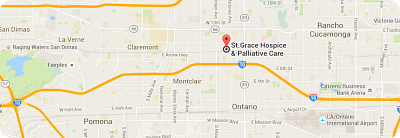What We Do
A highly qualified team of professionals provides a regimen of care that addresses the patients’ needs on their medical, physical, emotional, and spiritual levels. This interdisciplinary team (IDT) will collaborate and develop an individualized plan of care to provide a combination of the following services as needed:
Physician Care
Physicians – Attending Physicians approve the plan of care and work with the hospice team while Hospice Doctors specialize in controlling symptoms, such as pain, nausea and shortness of breath, with comfort as a goal.
Skilled Nursing
Skilled Nurses, RNs and LVNs are the primary care coordinators, being the common link between patients, families, the hospice team and other care providers. After completing the initial and comprehensive assessment, they plan, organize and direct hospice care for both patient and family. Skilled nurses monitor and manage symptoms and provide education about topics pertinent to the plan of care like medication administration and the disease process.
Social Work Services
Social Workers – MSWs and LCSWs act as the community advocate, making sure patients and families have access to the social resources they may need during their time in hospice. They also help family members mend damaged relationships, plan for the future and ease other emotional difficulties.
Spiritual Care
Spiritual Care Counselors and Chaplains from various denominations are available to visit patients and families if desired. They help in coping with spiritual questions and concerns at the end of life, either directly or by coordinating services with the patients’ or families’ local churches.
Hospice Aides
Hospice Aides provide assistance with basic “Activities of Daily Living” such as bathing, oral hygiene, dressing, toileting, and transferring.
Volunteers
Volunteers are there to listen, offer compassionate support and assist with non-medical services such as letter writing, errands and companionship.
Bereavement Support
Bereavement Counselors help patients and families deal with grief. Grief support services continue for at least one year after the death of a hospice patient.
Other Therapies
Complementary Therapies may include, but are not limited to, Physical Therapy, Occupational Therapy, and Speech Therapy as called for by the patient’s plan of care.


